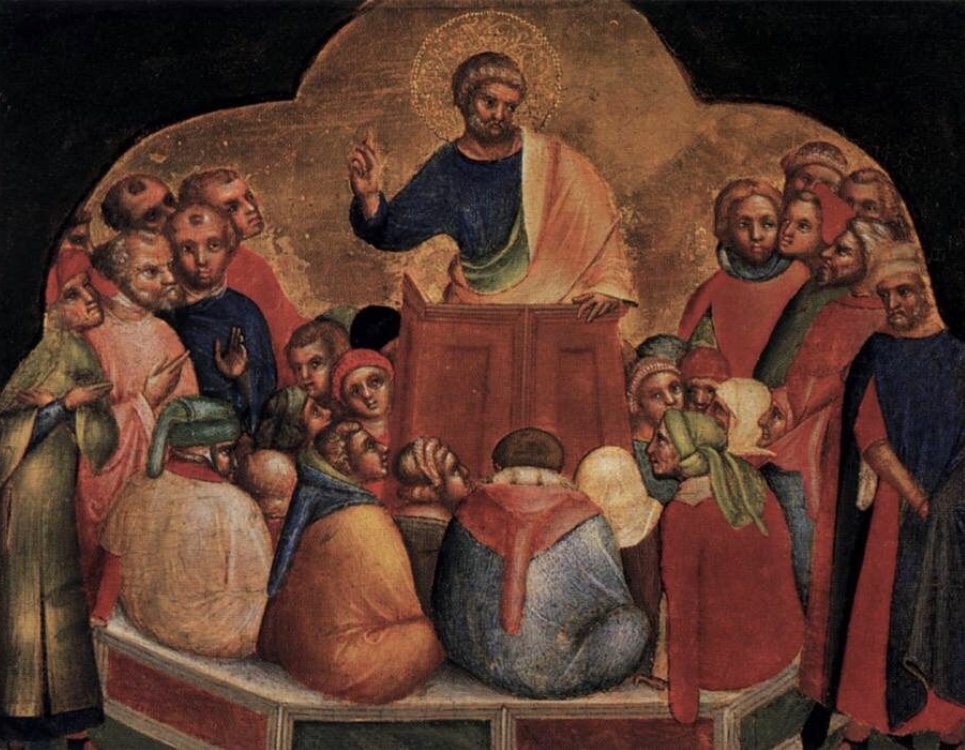Rev José Mario O Mandía
jmom.honlam.org
The New Testament shows us how Jesus gave special treatment to Peter, how he chose him from among the twelve. Does the New Testament also tell us about how Peter played his role? Yes, it does.
Peter takes the lead on many occasions: he asks the Lord to explain the parables to them (Matthew 15:15); he asks if the parable is only for the group or for everyone else (Luke 12:41); he professes Jesus to be the Messiah (Matthew 16:16; Mark 8:29; Luke 9:20); he rebukes Jesus when the latter foretells his passion and death (Matthew 16:22; Mark 8:32); of the three apostles Jesus takes with him to the mountain during the transfiguration, it is Peter who proposes to set up three tents (Matthew 17:4; Mark 9:5; Luke 9:33); after Jesus says that whatever they loose on earth will be loosed in heaven, and whatever they bound on earth will be bound in heaven (Matthew 18:18), Peter is the one who asks how many times they ought to forgive (Matthew 18:21); he promises to be faithful in the midst of persecution (Matthew 26:33; Mark 14:29; John 13:37); he felt it his duty to defend our Lord when the soldiers came to arrest him (John 18:10); he runs to the tomb after being informed by the women about the resurrection (Luke 24:12; John 20:3) and John lets him get in first, even if John reached the tomb earlier (John 20:4-5).
Peter speaks on behalf of the apostles: “Peter said in reply, ‘Lo, we have left everything and followed you. What then shall we have?’” (Matthew 19:27; also in Mark 10:28, Luke 18:28)
When Jesus was being followed by a huge crowd and a sick woman touched Him, Jesus asked who it was who touched Him. It was Simon who answered: “Peter said, ‘Master, the multitudes surround you and press upon you!’” (Luke 8:45)
When Jesus Christ speaks about giving His flesh as food and His blood as drink, many people no longer wanted to listen to him and left. When our Lord asks His apostles if they would leave as well, Simon answers on their behalf: “Simon Peter answered him, ‘Lord, to whom shall we go? You have the words of eternal life; and we have believed, and have come to know, that you are the Holy One of God.’” (John 6:68-69)
Other people also recognised Peter as the leader of the twelve, as when the collectors of the half-shekel tax approach him (not Matthew, the former tax collector!) to ask whether Jesus paid tax (Matthew 17:24).
After Jesus rose from the dead, the angels at the tomb told the women to “go, tell his disciples and Peter that he is going before you to Galilee; there you will see him, as he told you” (Mark 16:7). The two disciples to whom Jesus appeared on the way to Emmaus went back to Jerusalem and were informed that “The Lord has risen indeed, and has appeared to Simon!” (Luke 24:34)
After Jesus ascends to heaven, Peter leads the early Church. As they meet to fill in the place of Judas Iscariot, it is Peter who speaks and leads the assembly of 120 believers in choosing replacement for Judas (Acts 1:15); it is Peter who addresses the crowd after the coming of the Holy Spirit at Pentecost (Acts 2:14-36) and when they asked what they were supposed to do (note that they asked “Peter and the rest of the apostles” – Acts 2:37) it is Peter who gives instructions (Acts 2:38-40). When Peter and John were asked by the lame man for alms, it is Peter who speaks, acts, and cures the man (Acts 3:4-8); when the crowds saw the miracle, it was Peter who spoke to them (Acts 3:12-26). It was Peter again who explained to the scribes and elders what they had done (Acts 4:8-12). It was Peter who confronted Ananias and Sapphira and brought about their death (Acts 5:3-11). Such was Peter’s power that the people were contented with just letting his shadow fall on them for them to be cured (Acts 5:15). St Peter is recorded as the first one who gave the sacrament of Confirmation (Acts 8:14-15). The 9th chapter of the Acts (verses 32-41) also highlight two other miracles that Peter made (the cure of Aeneas and the raising of Dorcas) and the conversions that resulted. It was Peter who was shown a vision that made him see that the Church was not only for the Jews but for all men (Acts 10 and 11).


 Follow
Follow



Nice to see someone acknowledge that Peter was responsible for the deaths of Ananias and Sapphira, using the spiritual power that was allotted to him. Do you really think that was a good pastoral move, to murder someone before the altar for cheating on their tithes? Did it advance the Kingdom?